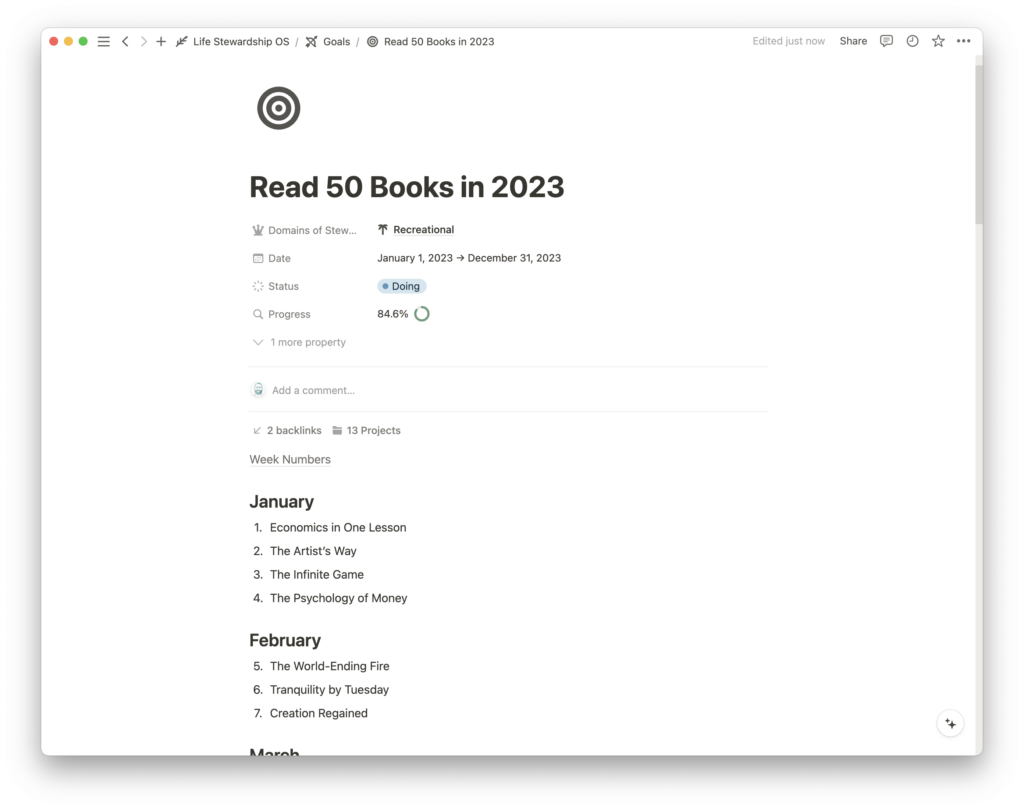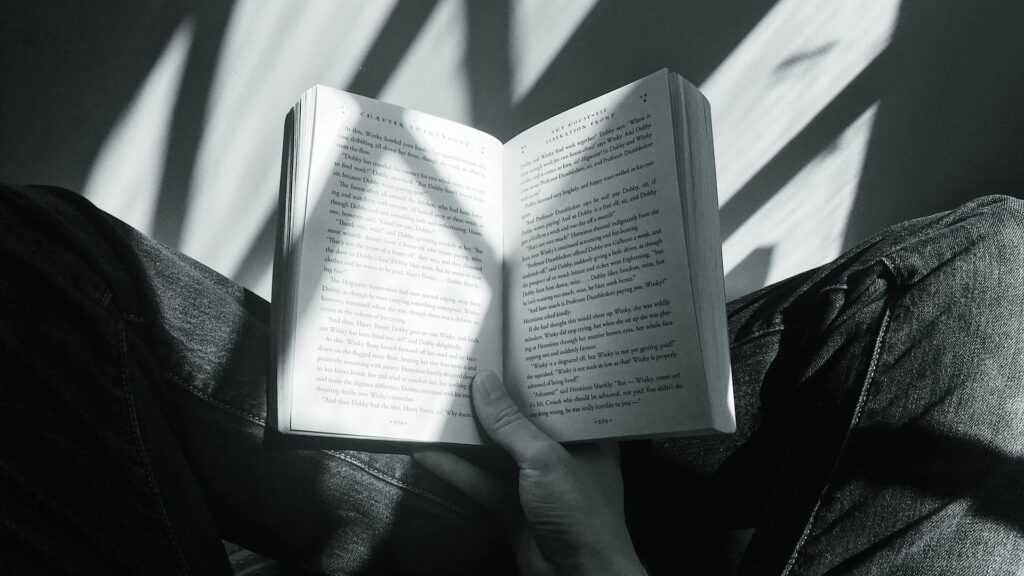I’ve been an avid reader since childhood. And I have read 50–100 books each year for most of my adult life. The truly avid readers will tell me that’s nothing. But I found that to be a reasonable pace for me to sustain with a bit of intention.
But I must admit, the last few years have had me reading fewer and fewer books. It’s just easier to pick up my phone than it is to pick up a book. And I was noticing that scrolling had slowly pushed aside page-turning for me.
And I did not like that.
So this year, I decided to make a plan to read more books. In this article, I’ll share the strategies I found most helpful. But please note, these tactics only concern reading a greater number of books; if you want some tips on reading better and more deeply, see this post.
Set a reading goal & track it.
There are 52 weeks in a year, and I knew from experience that I could efficiently complete a book weekly if I just read a little each morning. So I set the goal of reading 50 books (because it’s a nice round number and allowed for some wiggle room).
At first, I tried using Goodreads to track my reading, but I just couldn’t get into it. So, instead, I put the goal in my Notion goal tracker. And each time I finished a book, I would add it to a numbered list. Seeing the number go up encouraged me to keep going.

I also kept a link to the weeks of the year so I could quickly check if I was on pace. For example, if it was week 13, I should have finished 13 books by then.
Make a reading list.
Before the year started, I created a list of books in different genres that I wanted to read—business books, theology, fiction, Christian living, biographies, etc.
I didn’t choose all 50 books in advance, maybe about 20. Because I knew that throughout the year, books would catch my interest, and I wouldn’t want to wait a whole year to read them. But I also knew unless I decided in advance, there were some books I should read that I wouldn’t choose to read otherwise.
The combination of a little structure with having a list and wiggle room to follow my interests worked well for me.
Schedule time to read.
The most important thing to do if you want to read more is to schedule time for it.
If you want to read 50 books in a year, it doesn’t actually take that big of a time commitment. Most people only need to read for 30–60 minutes daily, depending on how fast they read.
I read for 30 minutes each morning as part of my morning routine. And I also read for about 30 minutes before bed. The morning books are always non-fiction, and the before-bed books are fiction that I read aloud to my wife as we fell asleep (super cute, I know). We did a lot of Jane Austin this year.
I also listened to some audiobooks, but this didn’t follow any set schedule.

Replace distractions with reading.
Another meta-strategy that helped me was deliberately spending less time on devices and replacing that time with reading.
I stopped using social media in August of this year, and one nice benefit of that is that I immediately saw an uptick in my reading. It’s like when you remove junk food from your house. If the only option when craving a snack is fruit, you’ll eat the fruit. If you remove the option of time-wasting entertainment, you have no choice but to read for entertainment.
Another thing I’ve started to be more deliberate about is reading during my breaks from work. Most of what I do for Redeeming Productivity happens in front of a computer screen. But when I take breaks, it’s easy just to turn on a YouTube video or read an article on the screen. I’ve been keeping a physical book nearby and reading a few pages lately. It’s a nice break for the eyes and helps me make some progress on my reading list.
Take advantage of multiple formats.
I prefer reading physical books, but I have limited space for them. And there’s nothing for convenience like an ebook on my phone or an audiobook in my ear while I’m on the go.
I’m constantly rolling with an audiobook, an ebook, and a physical book. Each format has its advantages. For example, I completed a major home renovation this year, and that had me listening to loads of audiobooks while I worked. Pretty much all of my fiction books are ebooks because I read them on my Kindle Paperwhite in bed with the lights off. And my morning non-fiction reading is usually a physical book, but sometimes an ebook.
By the way, my system for deciding if I want to buy a physical book or an ebook is simple. I ask myself if I’m 100% positive I’d want the book on my bookshelf. So, newer books usually get the Kindle treatment, and classics join the privileged throngs in my physical library.
Conclusion
I grow more convinced each year that one of the best things we can do for our information diet is to spend less time online and more time reading books.

